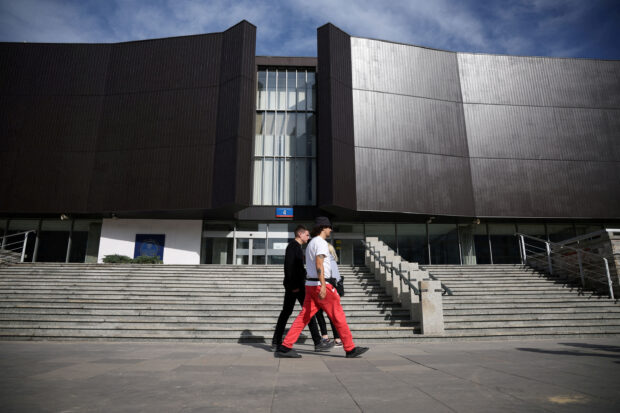Poland’s central bank shocks markets with a 75-basis point cut to its main interest rate. The unexpected move, which sent the zloty currency tumbling, comes ahead of October elections. Analysts had predicted a 25-bps cut. The National Bank of Poland (NBP) cites weaker demand pressure and a faster return of inflation to target as reasons for the decision. Critics warn of inflationary risks and question the political motive behind the move.
Poland’s central bank, the National Bank of Poland (NBP), has surprised markets by abruptly cutting its main interest rate by 75 basis points to 6 percent. This unexpected decision sent the zloty currency tumbling against the euro and raised concerns ahead of the October elections. Prior to the announcement, analysts had predicted a more modest 25-basis point cut. The zloty dropped 1.5 percent, reaching its weakest level since May, and banking stocks experienced a decline of over 5 percent.
The NBP defended its decision, stating that it expects inflation to return to its target faster than previously anticipated. In a statement, the central bank said, “In the Council’s assessment, recently incoming data point to a weaker demand pressure than previously expected, which will contribute to a faster return of inflation to the NBP inflation target.” It also emphasized that the interest rate adjustment will help achieve the inflation target in the medium term.
NBP Governor Adam Glapinski had hinted at a rate cut in September if inflation fell to single digits. However, August’s inflation figure just missed this target, coming in at 10.1 percent according to a flash estimate. Economists were quick to caution against the risks of such a drastic shift in monetary policy, highlighting concerns about the potential for entrenched inflation.
There is a debate among analysts about the appropriateness of the size of the rate cut. J.P. Morgan analysts argue that, given the high uncertainty surrounding inflation prospects both in Poland and globally, central banks should exercise caution. They state, “If cutting rates at this point was debatable, cutting in size is even more so.” Meanwhile, Wojciech Paczos, a research economist at Cardiff University, believes that political considerations may have played a role in the decision. He suggests that there is a risk of reversing the rate cut after the upcoming elections in October, potentially leading to a resurgence in inflation.
Glapinski, who is allied with the ruling Law and Justice (PiS) party, has faced accusations of allowing politics to influence monetary policy. The government spokesman, however, denies any involvement from the government, stating, “The Monetary Policy Council makes decisions independently of the government. The composition of the council is diverse and is elected by various state institutions. The government has no say in council decisions. Thus, the allegations made by critics are unfounded.”
Denial of responsibility! Vigour Times is an automatic aggregator of Global media. In each content, the hyperlink to the primary source is specified. All trademarks belong to their rightful owners, and all materials to their authors. For any complaint, please reach us at – [email protected]. We will take necessary action within 24 hours.


